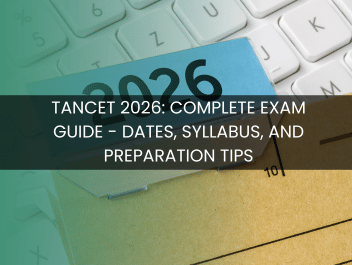
10 Must-Know Interview Questions UK Employers Love to Ask
Navigating the job market can be daunting, especially in a competitive landscape like the UK. Mastering interview questions is crucial for showcasing your potential and fitting seamlessly into a new role. Recognizing the key interview questions that UK employers frequently ask can make all the difference in securing your dream job.
Understanding these interview questions is more than just knowing what to say—it's about appreciating why they're asked. Questions like "What can you tell me about yourself?" or "Why do you want to work here?" provide employers with insights into your values, ambitions, and fit for the company culture. It's not just about the answers; it's about delivering them in a way that resonates with UK employers.
This article will delve into 10 must-know interview questions, offering strategies for crafting impressive interview questions and answers specific to the UK. We'll explore tips for effective responses using methods like the STAR technique and guide you through comprehensive preparation, ensuring you can approach your interview with confidence and clarity.
Table of Content
Understanding the Importance of Interview Questions
Navigating the world of job interviews can be daunting, especially with the myriad of interview questions in the UK. Job seekers need to understand not just what is asked, but why. Interview questions UK are designed to gauge a candidate’s skills, experiences, and cultural fit within a company.
Companies often focus on typical interview questions such as strengths, weaknesses, and career goals. Knowing the purpose of these questions helps candidates give relevant and insightful answers.
Common Interview Questions and Answers UK
- Tell
me about yourself.
- Focus on your career path and personal growth that aligns with the job description.
- Why
do you want to work here?
- Show your understanding of the company culture and how your skills contribute.
- Describe
a challenge you faced and how you overcame it.
- Illustrate your problem-solving ability and team dynamics.
Quick Tips for Interview Preparation
- Research: Understand the company and the specific
job role.
- Practice: Rehearse answering typical interview questions.
- Reflect: Consider your career goals and how this position fits.
By integrating these insights, job seekers can better articulate their potential and secure their dream job.
Commonly Asked Interview Questions
Navigating the job interview process can be intimidating for many job seekers. In the UK, interview questions are often structured to assess a candidate's abilities, experience, and compatibility with the company's ethos. Understanding these common interview questions can significantly improve a candidate’s performance. From queries about personal strengths to long-term career aspirations, these questions are designed to help interviewers find the best fit for the role. In this article, we'll explore some of the most commonly asked interview questions in the UK, providing insight into what employers are looking for and how candidates can best prepare their answers.
What can you tell me about yourself?
This question is a staple in job interviews across the UK. It's an opportunity for candidates to present a succinct summary of their professional journey. Employers typically seek answers that address your career path, highlighting both professional and personal growth relevant to the job description. Candidates should focus on experiences that showcase their skills and align with the role. It's important to stay relevant, highlighting key achievements and lessons learned that can benefit the potential employer. A well-rounded answer can set a positive tone for the rest of the interview.
Why do you want to work here?
When employers ask this question, they are gauging your motivation and understanding of the company culture. A well-thought-out response demonstrates that you have researched the company and understand its values and objectives. Articulate how your skills and experiences align with the company’s goals, and express genuine enthusiasm about contributing to the team. By aligning your personal ambitions with the company’s mission, you show that your interests are not just about personal gain but also about the success of the organization.
What are your strengths and weaknesses?
This common interview question aims to assess your self-awareness and honesty. When discussing strengths, choose traits that are particularly relevant to the job role you are pursuing. Provide examples of how these strengths have benefited your previous work experiences. Conversely, when talking about weaknesses, be candid but strategic. Highlighting areas of personal growth and how you’ve made efforts to improve these weaknesses can reflect positively on your adaptability and commitment to professional development.
Where do you see yourself in five years?
Employers ask this question to understand your career goals and whether they align with the company’s trajectory. A compelling answer should highlight realistic ambitions and show planned progression that matches company opportunities. It’s an occasion to discuss your desire for professional growth within a role while contributing to the organization's success. By demonstrating foresight and a proactive mindset, you can reassure employers that you are interested in a long-term association with the company, aiming for mutual growth.
Describe a challenging situation and how you handled it.
This question is designed to assess your problem-solving skills and ability to cope with difficult situations. Narrate a relevant situation that poses a challenge, explaining the steps you took and the results of your actions. Employers are interested in how you approach challenges, your decision-making process, and your ability to work within team dynamics. By highlighting your strategic approach and determination, you demonstrate resilience and the ability to effectively manage adversity, key traits for maintaining productivity in a professional setting.
How to Answer Interview Questions Effectively
Navigating an interview can be daunting, but preparing with the right approach can significantly improve your performance. Whether you're facing interview questions in the UK or elsewhere, the key lies in understanding both typical interview questions and your personal experiences. This way, you can tailor your responses to reflect the job description while also highlighting your skills. Employers look for candidates who not only meet job roles but also fit into the company culture. As you prepare, consider how you will present yourself as a team player and showcase your career goals.
Tips for Structuring Your Answers
When tackling interview questions and answers in the UK, a clear structure can make all the difference. Start by listening to the question carefully, ensuring you understand what is being asked. This is crucial in giving a relevant and coherent response. Begin your answer by addressing the question directly, then expand with relevant details. Keep in mind the interview process often aims to assess not only your skills but also your understanding of team dynamics and your potential for personal growth.
Focus on the job description and how your skills align. Highlight your professional growth by providing examples of past experiences. Use your answers to demonstrate you are ideal for the role and that you've thought about your career path. By organizing your thoughts clearly, you can avoid common pitfalls and tricky interview questions. Remember, structured answers convey confidence and preparedness.
Using the STAR Method
The STAR method is an effective way to answer common interview questions in the UK. This technique helps you explain your previous experiences in a structured manner, making it easier for interviewers to grasp your capabilities. Begin by outlining the Situation you faced, providing enough context to understand the challenges. Next, describe the Task you were responsible for, and what was required in the situation. This part should be concise, focusing on the specific problems you needed to solve.
Then, move on to the Action you took. This is where you demonstrate your skills, highlighting how you contributed as a team player. Explain your thought process and the steps you took to address the issue. Finally, detail the Result of your actions, emphasizing the positive outcomes. Whether it was improving team dynamics or achieving professional growth, the result should showcase the impact of your efforts. Using STAR not only structures your answers but also highlights your competencies and fit for the company culture.
Preparing for the Interview
Getting ready for a job interview may feel overwhelming, but with the right preparation, you can increase your chances of success. The interview process in the UK often includes many interview questions, tailored to assess both your professional and personal suitability for the role. Being well-prepared can make a positive impression on potential employers. This involves understanding common interview questions and answers in the UK, researching the company, practicing your responses, and engaging in role-playing exercises. By investing the time and effort to prepare thoroughly, you'll be better equipped to handle tricky interview questions confidently. Let's explore some strategies to help you shine in your next job interview.
Researching the Company
Before attending an interview, it's crucial to understand the company you are applying to, as this can greatly influence the impression you make. Start by visiting the company’s website to familiarize yourself with its mission, values, and latest news. Understanding the company culture and team dynamics can provide valuable insights and help you tailor your responses to interview questions. Knowing this information can demonstrate your interest and enthusiasm for the role, setting you apart from other job seekers.
Additionally, look for recent news articles or press releases to gain a deeper understanding of the company's current standing and objectives. If possible, connect with current or former employees on professional networks for firsthand insights. Contrast common questions with the specifics about the company could create bespoke advice for your interview preparation. This groundwork can help you articulate why you see this role as part of your dream job or career path.
Practicing Your Answers
Practice is key to acing interview questions and answers in the UK. Begin by preparing responses to typical interview questions, such as "Can you tell me about yourself?" or "Why do you want to work here?" Practicing such responses will build confidence and help you communicate effectively during the actual interview.
Consider recording yourself answering common interview questions to analyze your delivery and body language. Pay special attention to tricky interview questions that require you to think on your feet. Plan responses that highlight your skills, experiences, and alignment with the job description. With each practice session, aim to become more comfortable in your delivery while ensuring your answers are concise and relevant.
The goal is to be familiar with your responses but also to remain flexible enough to adapt them to different contexts. Practicing these aspects will equip you to handle the interview process more smoothly and allow room for professional and personal growth.
Role-playing with a Friend
Role-playing with a friend can be an incredibly effective way to prepare for an interview. This technique allows you to simulate the interview setting, making the experience feel more real and reducing anxiety on the big day. Choose a friend who can provide constructive feedback on not just your answers, but also on your demeanor and confidence.
Set up a mock interview where your friend asks the most relevant interview questions UK employers may pose. Encourage them to act like a real interviewer and perhaps even throw in a tricky question or two. This practice can reveal areas you need to improve, such as clarity in answers or non-verbal cues.
Moreover, role-playing can assist in refining your responses to behavioral interview questions, emphasizing your ability to be a team player or shine within team dynamics. By rehearsing in a controlled, yet realistic setting, you can gain the confidence and poise needed in an actual interview, making you a standout candidate prepared for professional success.
Conclusion
Navigating job interviews in the UK can be challenging, but with the right preparation, success is within reach. This article has delved into various facets of interview questions UK offers to job seekers. Understanding common interview questions and answers in the UK can help candidates present themselves as the ideal fit for the role. By becoming familiar with typical interview questions and the general interview process, candidates will gain confidence and stand out to potential employers. Being well-prepared enhances the chances of showcasing your best qualities and landing your dream job.
Focusing on critical aspects of interviews, such as understanding the job description and anticipating tricky interview questions, can improve your performance. Additionally, considering team dynamics and personal growth will highlight your adaptability and readiness for new challenges. Ultimately, practice and preparation are the keys to mastering interviews. By employing the strategies and insights provided, you'll be on the path to successful job hunting in the UK.
Key takeaways on interview preparation
Successful interview preparation hinges on understanding interview questions and answers UK companies frequently use. Knowing how to respond to these questions is vital for making a positive impression. Preparation starts with a thorough analysis of the job description. It provides insight into what the employer values and helps tailor your responses to demonstrate these qualities effectively.
Understanding company culture and aligning your answers with its values show you're a cultural fit. Practice answering typical interview questions, and consider both video interviews and actual interviews, as different formats may be employed. Be ready for common questions and also prepare for trickier ones that test problem-solving skills and creativity.
Incorporating knowledge about team dynamics positions you as a team player. Employers value candidates who can adapt to different roles and foster a positive working environment. Finally, reflecting on your career goals and how the job fits your career path will affirm your commitment to professional growth. With these strategies, your interview preparation will be thorough, enhancing your chance of success in the competitive UK job market.
Looking For Job Satisfaction on the long run?
Please feel free to contact our experts
Call to ask any question
+91-9319336222Monday to Saturday
(9:00 AM to 8:00 PM)Resent Blogs
10 Things to Do During an Interview to Impress Your Future Employer
Learn MoreCrafting Your Personal Narrative: A Guide to Writing About Yourself
Learn MoreTop 10 Essential Interview Questions and Expert Answers for 2025
Learn MoreAce Your Next Interview: Essential Questions and Expert Answers for 2025
Learn MoreFirst-Time Manager Interview: Crucial Questions and Strategies for Success
Learn More150 Essential General Knowledge Questions for Interviews in 2025
Learn MoreMaster the Google Interview: Strategies for Success in 2025
Learn MoreHow Can You Describe Yourself Professionally? 5 Key Strategies You Need to Know
Learn MoreMastering the Art of How to Take Interview: Essential Techniques for Success
Learn More25 Essential HR Interview Questions and Answers PDF You Can't Ignore
Learn More7 Tips to Ace Your HR Screening Round and Land Your Dream Job
Learn More10 Essential Tips for Acing Your Interview Exam
Learn More5 Unique Interview Format Examples to Stand Out in Your Next Interview
Learn More5 Powerful Techniques for a Memorable Interview Introduction
Learn MoreMaster Your Next Interview with These Top Interview Preparation Apps
Learn MoreMastering the Art: Top Interview Questions for 12th Class Students
Learn More7 Must-Know Interview Questions for Freshers to Ace Your Job Hunt
Learn MoreMastering Interview Questions for HR Position with Answers: Strategies for Success
Learn More12 Essential Interview Questions for Recruiter Position You Should Prepare For
Learn More10 Must-Know Interview Questions UK Employers Love to Ask
Learn More10 Creative Interview Writing Examples to Spark Your Imagination
Learn More15 Essential Managerial Interview Questions for Freshers to Prepare
Learn More15 Unique Marketing Interview Questions You Haven't Prepared For
Learn More7 Key Strategies for a Successful Mock Interview Session
Learn MoreThe Ultimate Guide to Model Interview Questions: What You Need to Know
Learn More5 My Self Question Exercises to Unlock Your True Potential
Learn More10 Normal Questions That Can Spark Deep Conversations
Learn More15 Essential Personal Interview Questions for Freshers to Ace Your Next Job
Learn More10 Essential Phone Interview Questions You Can’t Afford to Ignore
Learn More15 Essential Sales Interview Questions and Answers for Freshers
Learn More7 Key Situational Interview Questions Every Employer Should Ask
Learn More15 Essential Software Developer HR Interview Questions You Need to Prepare For
Learn MoreMastering the Technical Interview: Essential Questions and Answers
Learn MoreTop Strategies for Responding to Tell Me About Yourself in a Student Interview
Learn MoreTop 10 Interview Questions and Expert Answers
Learn MoreMastering the Art of Interviewing: 50 Tough Questions and Smart Answers
Learn MoreHow to Ace Your Next Mock Interview: Tips and Strategies for Success
Learn MoreYour Ultimate Guide: 60 Insightful Questions to Ask Interviewers
Learn MoreCrafting the Perfect Response to Why Do You Want This Job?
Learn MoreUnique Ways to Tackle the Question Why Should We Hire You?
Learn MoreWhy Should We Hire You? - Top 10 Answers for Customer Service Roles
Learn MoreMastering the Art of Discussing Work Experience in Interviews
Learn MoreMastering Your Sales Interview: 50 Essential Questions and Answers
Learn MoreCareer Paths After 12th Commerce: Your Future Starts Here
Learn MoreExplore One-Year Courses After 12th for Non-Medical Students
Learn MoreQuick Career Paths: 2-Year Degree Courses After 12th for Fast-Track Success
Learn MoreComprehensive Guide: Courses After 12th Commerce
Learn MoreTop 10 Lucrative Courses to Consider After Completing Engineering
Learn MoreAdvancing Your Career: Top Choices After B.Tech in 2025
Learn MoreExplore Your Future: After CET Exam Which Course is Best for Aspiring Professionals?
Learn More5 Reasons Why After Inter CEC, Choosing the Right Course is Crucial
Learn MoreAfter PUC Which Course is Best for Aspiring Engineers? Explore Your Options!
Learn MoreUnlocking Your Future: Best Arts and Science Courses After 12th for 2025
Learn MoreWhy a Bachelor Degree in Commerce is Your Pathway to Success
Learn More15 Best Career Courses to Boost Your Earning Potential in 2025
Learn MoreEmerging Career Fields for 2025: What You Need to Know
Learn MoreExploring In-Demand Career Paths After 12th: Science, Arts, Commerce
Learn More15 Lucrative Science Careers You Should Consider
Learn MoreHigh-Paying Career Paths for Girls After 12th Commerce
Learn MoreTop 10 High Salary Career Courses After 12th Biology
Learn MoreTop 10 High-Paying BSc Specializations for 2025
Learn MoreExploring the Future: Innovative Career Paths for B.Tech Graduates in 2025
Learn MoreComprehensive Guide to B.Tech Specializations for MPC Graduates
Learn MoreUnlocking Your Potential: The Ultimate B Tech Job List for 2025
Learn MoreB.Tech Salary Insights: How Much Can You Earn Per Month?
Learn MoreEssential Business Courses After 12th: Your Guide to a Successful Career
Learn MoreHow Commerce Students Can Transition to BSc IT
Learn MoreExploring Career Paths After 12th: Your Guide to Success in 2025
Learn MoreCertainly! Here are 10 additional title ideas inspired by the list you provided
Learn MoreExploring Career Paths After Engineering: Your Guide to the Future
Learn MoreThe Ultimate Guide to Career Options Post-High School Graduation
Learn MoreDiscover the Top 10 Chemistry Courses After 12th That Lead to High-Paying Jobs
Learn MoreExplore the Best Diploma and Certificate Programs After 12th Commerce
Learn MoreCareer Paths for Computer Science Graduates: Top Opportunities to Explore
Learn MoreExplore Top Courses After 12th: Your Path in Science, Arts, or Commerce
Learn MoreTop 10 Courses After 12th Commerce for a Successful Career
Learn MoreTop Paying Professional Courses After 12th for Commerce Students
Learn MoreEmerging Career Paths After 12th Commerce Without Maths
Learn MoreExploring Career Paths After 12th Science: A Complete Guide
Learn MoreComprehensive Guide to Courses and Career Paths after 12th Grade
Learn MoreEmerging Career Paths in India: What to Expect in 2025
Learn MoreTop Diploma Paths for Students After Completing 12th Science
Learn MoreTop 15 Easiest High-Paying Jobs to Pursue in India by 2025
Learn MoreNavigating Your Future: Easy Degree Options After 12th
Learn MoreExploring Top Engineering Branches After 12th: A Comprehensive Guide
Learn MoreExploring Advanced Studies: Top Entrance Exams for Engineering Graduates
Learn MoreMBA Salary Insights: Top Packages and Compensation Trends in India
Learn MoreTop 15 Lucrative Careers in India for 2025
Learn MoreTop 10 High-Paying Jobs for Commerce Graduates Without Maths
Learn MoreTop 10 High Salary Courses After 12th PCB for Future Success
Learn MoreHigh-Earning Courses to Pursue After 12th Science in 2025
Learn MoreHigh Paying Career Paths for BiPC Students: Top 10 Courses to Consider
Learn MoreExploring High-Paying Engineering Degrees for the Future
Learn MoreExploring Integrated Courses After 12th: A Comprehensive Guide for Students
Learn MoreExploring Career Prospects: What Can You Do with a BBA Degree?
Learn MoreTop 15 In-Demand Professional Courses for Commerce Graduates in 2025
Learn MoreExploring Lucrative Job Paths for BBA Graduates in 2025
Learn MoreMBA Full Form Explained: Master of Business Administration & Its Strategic Career Value
Learn MoreBBA Full Form: The Definitive Guide to BBA Degrees, Admissions, & Career Paths
Learn MoreBCA Full Form Explained: Your Complete Guide to the Degree, Admission & Career Scope
Learn MoreIAS Full Form: Indian Administrative Service Explained & Its Pivotal Role
Learn MoreMBBS Full Form: Unraveling the Meaning Behind a Doctors Qualification
Learn MoreUPSC Full Form: Union Public Service Commission and Its Vital Role
Learn MoreBSc Full Form: Bachelor of Science & What It Means for Your Future
Learn MoreITI Full Form: What Exactly is Industrial Training Institute?
Learn MoreLLB Full Form: Your Ultimate Guide to Bachelor of Laws, Eligibility & Career Scope
Learn MoreIs There a True Computer Full Form? Unpacking the Popular Acronym
Learn MoreB.Tech Full Form Unpacked: Meaning, Scope, and Why It Matters for Your Career
Learn MoreIIT Full Form: Unveiling the Indian Institute of Technology and Its Legacy
Learn MoreMCA Full Form Revealed: Master of Computer Applications & Its Significance
Learn MoreIIT Full Form: Indian Institute of Technology – Understanding Its Legacy, Campuses, and Global Standing
Learn MoreYour Complete Guide to Becoming a Veterinarian: Education, Specialties & Career Paths
Learn MoreBSc Degree: Your Complete Guide to Courses, Careers, and Future Prospects
Learn MoreB.Com Full Form Unveiled: What Bachelor of Commerce Truly Means
Learn MoreBAMS Full Form: Bachelor of Ayurvedic Medicine and Surgery — Unpacking Its Meaning & Career Scope
Learn MoreWhat is a Polytechnic? Your Complete Guide to Courses, Admissions & Career Paths
Learn MoreSSC GD Constable Exam News 2025-26: Latest Updates on Vacancies, Dates & Application
Learn MoreHow to Choose the Best Veterinarian for Your Pet: A Comprehensive Guide
Learn MoreAir Hostess 2026: Your Complete Roadmap to Landing the Dream Job
Learn MoreUnlocking Your Future: The Ultimate BSc Degree Guide (Courses, Careers & Admissions)
Learn MoreCMA Full Form: Certified Management Accountant (Global Standard Explained)
Learn MoreNACH Full Form Explained: What It Is & Why It Matters in Banking
Learn MoreThe Modern Anthropologist: Understanding Their Role, Impact, and Diverse Specializations
Learn MoreBBA: Your Ultimate Guide to Course Details, Admission, Fees, and Future Career Prospects
Learn MoreBDS Full Form Unpacked: Your Essential Guide to Dentistry Courses, Admissions & Career Scope
Learn MoreBHMS Full Form Revealed: Your Complete Guide to Bachelor of Homeopathic Medicine & Surgery
Learn MoreB.Tech Admissions 2026: Your Complete Guide to Courses & Eligibility
Learn MoreCFA Full Form: Understanding the Chartered Financial Analyst Designation
Learn MoreMerchant Navy Salary in India: Unveiling Pay Scales by Rank & Experience
Learn MoreTS EAMCET 2026: Official Notification, Exam Dates & Application Guide
Learn MoreVITEEE 2026: Full Guide to Application, Dates, Syllabus & Preparation
Learn MoreBMS Full Form: Unveiling Bachelor of Management Studies & What it Entails
Learn MoreB.Sc. Computer Science: Your Complete Guide to Courses, Careers & Eligibility
Learn MoreComputer Science Explained: From Basics to Advanced Concepts
Learn MoreWorlds Most Difficult Exams: A Definitive Ranking for 2025
Learn MoreUnion Public Service Commission (UPSC): All You Need to Know
Learn MoreBE Full Form Explained: What Bachelor of Engineering Means & Your Career Path
Learn MoreDMIT Full Form Revealed: Unpacking the Dermatoglyphic Multiple Intelligence Test
Learn MoreIndias Most Difficult Exams: The Ultimate Ranking for 2025
Learn MoreCLAT Full Form: Unveiling the Common Law Admission Test + Key Details
Learn MoreHighest Paying Jobs in India: Unveiling the Top 25 Roles & Their Lucrative Salaries
Learn MoreMA Full Form: Unpacking the Master of Arts Degree & What It Entails
Learn MoreMarketing Management Explained: Core Concepts & Strategic Implementation
Learn MoreBCA Course Subjects: A Comprehensive Guide to Your IT Degree Curriculum
Learn MoreCAT Exam Date 2026: When to Apply & Exam Schedule Revealed
Learn MoreCDS Full Form: Unveiling Combined Defence Services & Your Path to Commission
Learn MoreLab Technician Career Path: Duties, Skills, and Salary Guide
Learn MoreYour Complete Guide to Becoming a Successful Software Developer
Learn MoreAir Hostess Course Guide: Everything You Need to Know for Your Aviation Career
Learn MoreIntroduction: Navigating Your Path to Medical Excellence in India
Learn MoreTop Commerce Courses After 12th: Unlock Lucrative Career Paths
Learn MoreTop Industrial Training Institutes: Your Guide to Skilled Trades
Learn MoreUnderstanding Psychometric Tests: Your Definitive Guide & Free Examples
Learn MoreWhat Does a Surgeon Do? A Comprehensive Guide to the Profession
Learn MoreUG Explained: Your Ultimate Guide to Undergraduate Degrees & Admissions
Learn More10th Pass Govt Jobs 2026: Your Complete Guide to Apply & Secure Your Career
Learn MoreATMA: Your Complete Guide to the Management Admissions Test
Learn MoreBHMS Course Guide: Eligibility, Syllabus, Career Prospects & Top Colleges
Learn MoreUnlock Your Future: The Definitive Guide to Career Counselling
Learn MoreWhat Does a Clinical Psychologist Do? Your Comprehensive Guide
Learn MoreM.Tech Full Form: Master of Technology Explained (Meaning, Scope & Benefits)
Learn MoreRadiology Courses Explained: From Certificates to Masters Degrees
Learn MoreBSc Courses Explained: Full Guide to Specializations, Admissions & Career Paths
Learn MoreBSc Nursing Course: Admission Guide, Eligibility, Syllabus & Career Paths
Learn MoreBA LLB Full Form Explained: Unpacking Bachelor of Arts & Bachelor of Laws
Learn MoreTop BBA Colleges in India: Unveiling the Elite Institutions for Your Management Degree
Learn MoreUPSC CDS Exam Date 2026: Complete Schedule & Notification Details
Learn MoreTop Career-Focused Courses After 12th Grade: Unlock Your Future
Learn MoreExplore the World of Humanities Subjects: A Comprehensive Guide
Learn MoreIPU CET 2026: Complete Guide to Applications, Syllabus & Cutoffs
Learn MoreISI Full Form: Unveiling the Meaning & Importance of the Indian Standards Institute
Learn MoreJEE Advanced 2026 Exam Date: When Will the Exam Be Held?
Learn MoreJEE Main 2026 Result Date: When to Expect Session 1 & 2 Results
Learn MoreMCA Course Guide: Everything You Need to Know About Eligibility, Fees, and Admissions
Learn MoreMultimedia Explained: Your Complete Guide to Definition, Examples, and Impact
Learn MoreThe Ultimate Paramedical Courses List: Find Your Perfect Career Path
Learn MorePharm.D. Program: Your Complete Guide to Curriculum, Admissions & Outcomes
Learn MoreThe Ultimate Guide to Top IIT Colleges in India: Ranking, Admissions, and Courses
Learn MoreATC Full Form: Unpacking Air Traffic Control, Anatomy & More
Learn MoreB.Ed. Course Duration in India: Everything Aspiring Teachers Need to Know
Learn MoreB.Sc Psychology Degree: Your Guide to Admissions, Curriculum & Career Paths
Learn MoreB.Tech Computer Science: Your Complete Guide to Admission, Syllabus & Career Prospects
Learn MoreBDS Course Duration: How Long is Bachelor of Dental Surgery?
Learn MoreBFA Full Form Explained: What is a Bachelor of Fine Arts & Why it Matters
Learn MoreBiology Explained: What It Is, Its Core Concepts & Why It Matters
Learn MoreBPT Course: Your Complete Guide to Bachelor of Physiotherapy Admissions
Learn MoreBSc Nursing Full Form: What it Means and Why it Matters
Learn MoreThe Science Complete Guide: Best Courses & Career Paths Revealed
Learn MoreMaster Your Future: Your Complete Guide to 2026 Government Exams & How to Prepare
Learn MoreMPhil Explained: Your Complete Guide to the Master of Philosophy
Learn MoreBecome a Certified Stenographer: Your Complete Course Guide
Learn MoreTANCET 2026: Complete Exam Guide - Dates, Syllabus, and Preparation Tips
Learn MoreUpcoming Government Exams 2026: Full Schedule, Eligibility & Application Dates
Learn MoreWhat is CA? The Complete Guide to Chartered Accountancy and Your Career Path
Learn MoreAgnipath Scheme Explained: Eligibility, Benefits, Salary & Career Path
Learn MoreAFCAT 2026: Your Complete Guide to the Air Force Common Admission Test
Learn MoreConnet Us
Unlock Your Dream Career Potential - Get Expert Advice From Our Counselling Experts










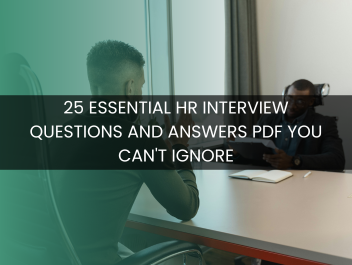




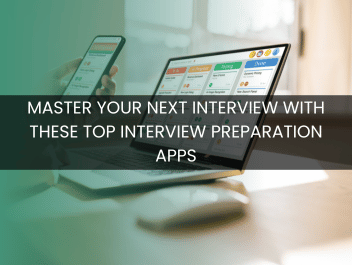















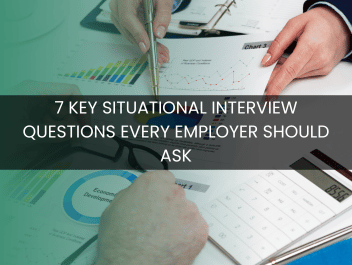





































































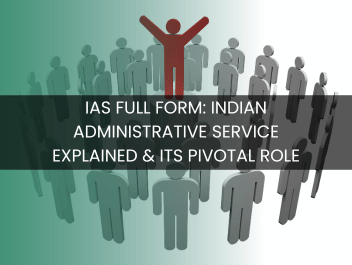










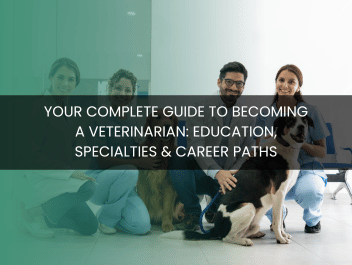







_Thumbnail_.png )
_Thumbnail_.png )














_All_You_Need_to_Know_Thumbnail_.png )






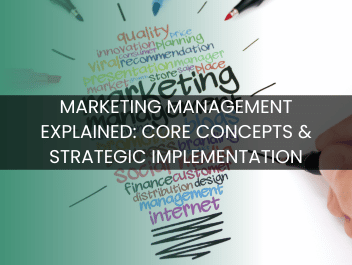




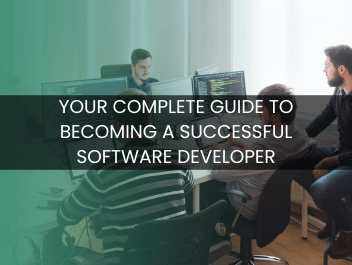












_Thumbnail_.png )






























